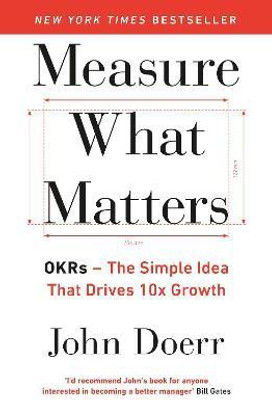
History For B.A (Hons.) Ist Semester of Kolhan University (Hindi, Paperback, Dr. A.K. Mittal, Dr. R. Agarwal)
Share
History For B.A (Hons.) Ist Semester of Kolhan University (Hindi, Paperback, Dr. A.K. Mittal, Dr. R. Agarwal)
4.2
62 Ratings & 12 Reviews₹270
₹275
1% off
Available offers
T&C
T&C
T&C
Delivery
Check
Enter pincode
Delivery by4 Jul, Friday
?
if ordered before 4:59 AM
View Details
Highlights
- Language: Hindi
- Binding: Paperback
- Publisher: Sahitya Bhawan Publications
- Genre: Academic and Professional
- ISBN: 9789386830487, 9386830485
- Edition: Revised, 2022
- Pages: 326
Services
- Cash on Delivery available?
Seller
Description
History of India (up to 300 B.C.)
Unit 1 : Nature of Sources
a. Archaeology, Epigraphy, Numismatics
b. Literary Sources : Religious and Non-Religious
c. Foreign Travelers' Accounts
Unit 2 : Earliest Human Organisation
a. Paleolithic Cultures : Stone Industries and other Technological Developments
b. Mesolithic Cultures : New Developments in Technology and Economy
c. Neolithic Age : Neolithic Settlements; Farming and Cereals, Pottery
d. Chalcolithic Cultures : Chalcolithic Settlements; Importance of Chalcolithic Phase
Unit 3 : Harappan Culture
a. Extent, Major Sites, Town Planning
b. Agriculture, Technology and Crafts, Trade, Religious Practices
c. End of the Indus Culture
Unit 4 : Vedic Age
a. Society, Economy, Polity and Religion in the Early Vedic Age
b. Society, Economy, Polity and Religion in the Later Vedic Age
Unit 5 : Developments from Sixth to Fourth Centuries B.C.
a. New Religious Movements : Jainism, Buddhism, Ajivikas
b. Emergence of Urban Centres; Social and Material Life
c. Mahajanpads, the Magadh Empire; Gana-Sanghas
Core Course–2
History of Europe (c. AD 1789-1871)
Unit 1 : The French Revolution
a. Ancient Regime
b. Role of the Philosophers
c. Phases of the French Revolution 1789-99
d. Legacy of the French Revolution
Unit 2 : Napoleon Bonaparte
a. Emergence of Napoleon Bonaparte
b. Reorganisation of France and Europe
c. Fall of Napoleon Bonaparte
Unit 3 : Restoration and Revolution : c. 1815–1848
a. Congress of Vienna 1815
b. Metternich and the Conservative Order
c. Revolutions of 1830 and 1848
Unit 4 : Changes and Developments : c. 1848–1871
a. The Emergence of Nation–States in Central Europe
b. Unification of Italy
c. Unification of Germany.
Read More
Specifications
Book Details
| Publication Year |
|
University Books Details
| Stream |
|
| Specialization |
|
| Term |
|
Dimensions
| Width |
|
| Height |
|
| Depth |
|
| Weight |
|
In The Box
|
Ratings & Reviews
4.2
★
62 Ratings &
12 Reviews
- 5★
- 4★
- 3★
- 2★
- 1★
- 39
- 10
- 7
- 0
- 6
4
Nice product
Nice book 📚
READ MOREAbhi Roy
Certified Buyer, Godda District
Mar, 2023
0
0
Report Abuse
4
Very Good
Best Book 📚
READ MOREBharat Kumar
Certified Buyer, Bhagalpur
Oct, 2022
0
0
Report Abuse
5
Just wow!
Books very helpful for my exam 😊😊
READ MOREFlipkart Customer
Certified Buyer, Navi Mumbai
Apr, 2023
0
0
Report Abuse
5
Just wow!
Ossum
READ MOREGaurav kumar
Certified Buyer, Khagaria District
Feb, 2023
0
0
Report Abuse
5
Fabulous!
Very nice book history honurs book Dr A.k mital kolhan university chaibasa
READ MORESurya Besra
Certified Buyer, Saraikela Kharsawan District
Feb, 2022
0
0
Report Abuse
5
Classy product
Very good
READ MORESuraj Kumar
Certified Buyer, Bokaro Steel City
Sep, 2021
0
0
Report Abuse
5
Highly recommended
Nice explanation I really understood 😊😊😊😊
READ MOREAman Kumar
Certified Buyer, Hajipur
Aug, 2021
0
0
Report Abuse
4
Wonderful
Awesome product
READ MOREVICKY YADAV Customer
Certified Buyer, Godda
Aug, 2019
1
1
Report Abuse
+
All 12 reviews
Be the first to ask about this product
Safe and Secure Payments.Easy returns.100% Authentic products.
Back to top











